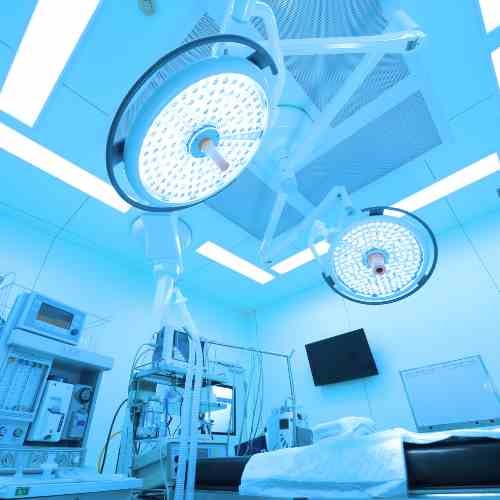Beyond Nuts and Bolts: The Role of Specialty Fasteners in Medical Device Manufacturing
When it comes to medical device manufacturing, precision, and reliability are paramount. Every component plays a crucial role in ensuring the safety and functionality of these devices.
At the same time, nuts and bolts may seem like ordinary fasteners, but specialty fasteners go above and beyond to meet the specific requirements of medical devices.
We will explore the significance of specialty fasteners in medical device manufacturing and how they contribute to the success of these life-saving technologies.

1. Precision and Customization
Medical devices are intricate and often require complex assembly processes. Specialty fasteners are designed precisely, ensuring tight tolerances and exact specifications. These fasteners are manufactured to meet the unique needs of medical devices, whether it's a tiny screw for a pacemaker or a specialized bolt for an orthopedic implant.
The ability to customize fasteners based on specific device requirements plays a vital role in achieving the desired performance and functionality.
2. Material Selection
Specialty fasteners used in medical device manufacturing undergo rigorous material selection processes. Biocompatibility, corrosion resistance, sterilization compatibility, and strength are carefully considered during the material selection. Stainless steel, titanium, and bioabsorbable materials are commonly used in medical device fasteners to ensure optimal performance and patient safety.
The right material choice helps prevent allergic reactions, infections, and device failures.

3. Enhanced Performance and Reliability
Medical devices often operate under extreme conditions and must withstand rigorous use. Specialty fasteners are engineered to enhance these devices' overall performance and reliability. They are designed to resist vibration, maintain torque retention, and withstand repeated sterilization processes without compromising structural integrity.
The quality and durability of these fasteners are essential to ensure the longevity and functionality of medical devices.
.jpg?width=500&height=500&name=The%20Role%20of%20Specialty%20Fasteners%20in%20Medical%20Device%20Manufacturing_compliance_%20Blue%20Chip%20Engineered%20Products%20(1).jpg)
4. Regulatory Compliance
The medical device industry is subject to stringent regulations and standards to guarantee patient safety. Specialty fasteners are crucial in ensuring compliance with these regulations.
Manufacturers must adhere to specific guidelines when selecting and implementing fasteners in their devices. Specialized fasteners, such as those with tamper-proof features, can help prevent unauthorized access or tampering with medical devices, enhancing patient security.
5. Ergonomics and Aesthetics
While functionality and performance are primary concerns, the overall user experience and aesthetics also play a role in medical device design. Specialty fasteners can be designed with ergonomic features, making them easier to handle and assemble during manufacturing. Additionally, these fasteners can be customized to match the device's aesthetics, ensuring a cohesive and visually appealing final product.
Specialty fasteners may seem like small components, but their role in medical device manufacturing is significant. From ensuring precision and customization to enhancing performance and compliance, these fasteners contribute to medical devices' overall safety, reliability, and functionality.
Manufacturers can create medical devices that meet the strictest industry standards by investing in high-quality specialty fasteners, ultimately benefiting patients and healthcare professionals alike.

